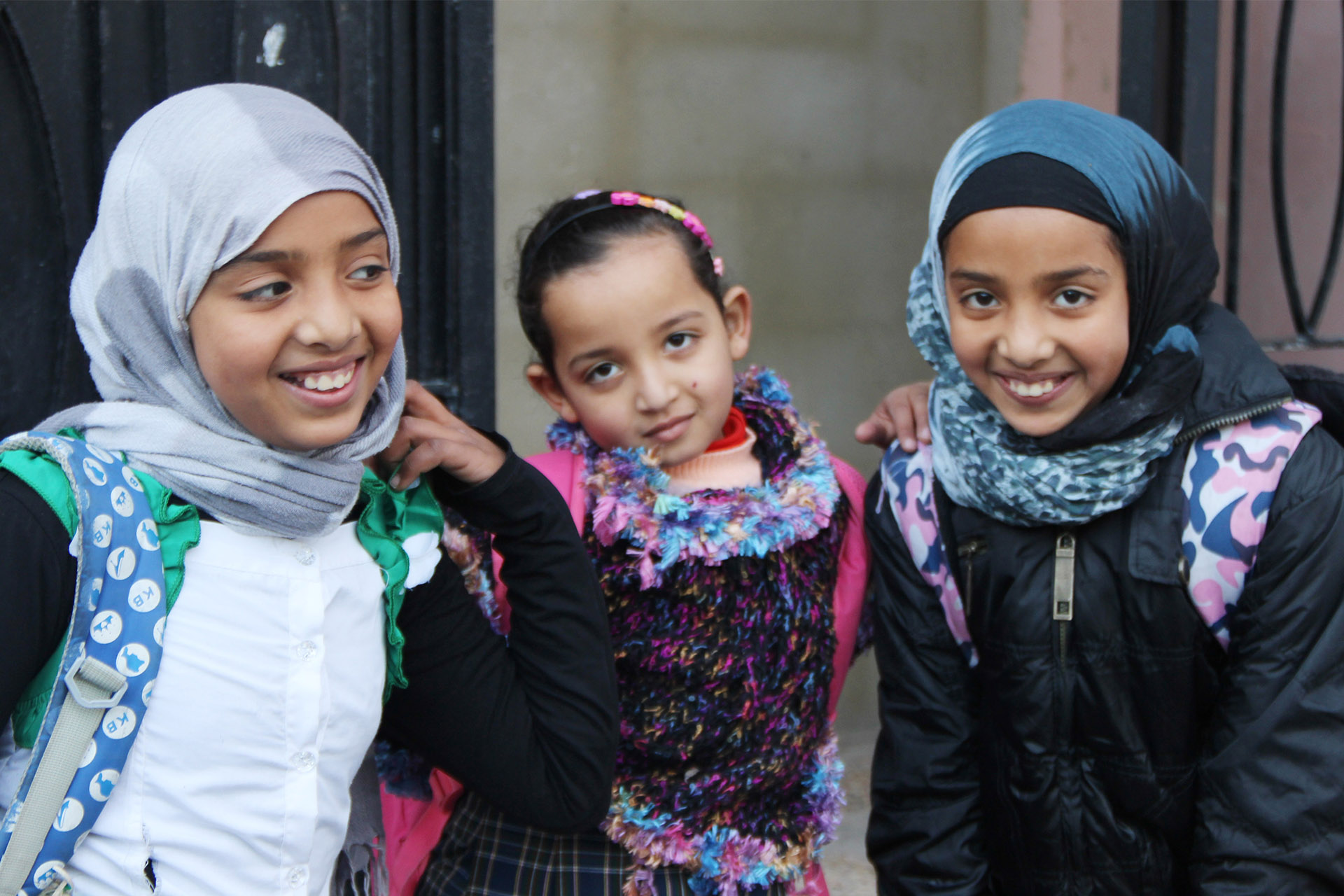In Lebanon, the national public school system acts as the main source of education for Lebanese and Syrian students, while UNRWA schools provide education for Palestinian children. Both systems face a debilitating lack of resources, resulting in crowded classrooms and a lack of equipment and supplies for children. The vast majority of schools are neither physically accessible to children with disabilities, nor do they offer special education to integrate children who experience learning difficulties. In addition, Syrian children often have difficulty succeeding in the Lebanese school system, due to the Lebanese curriculum’s exaggerated dependence on foreign languages, combined with the fact that the majority missed years of schooling during the chaotic period of the breakout of war in Syria and their arrival in Lebanon.
A combination of poverty and struggling school systems has resulted in high dropout rates, especially amongst refugees and orphans, who may also feel the need to join the labor force to help feed their families. In the long run, the resulting lack of education impairs community development and traps vulnerable people in a generational cycle of poverty.
Why education?
We at ISWA believe that education is a fundamental right for all, providing the key to better futures, improved health outcomes, and enhanced coping skills amongst youth of the next generation. Education also prevents youth from joining the labor force early or getting married as children, instead giving them the opportunity to dream and teaching them to plan for the long-term.
Educational programs at ISWA
ISWA has developed an integrated series of educational programs which, taken together, aim to address the main barriers to gaining an education in Lebanon. Programs include:
- Educational scholarships for orphans and vulnerable children
These children, including a large number of Syrian and Palestinian refugees, are at high risk of dropping out of school for financial reasons. To combat this phenomenon, ISWA includes educational support as one of the areas covered under its orphan and needy children program, sponsoring children to receive quality education at local private schools or one of the agency’s vocational training centers.
- Providing vulnerable children with school supplies, uniforms, and winter clothing
In addition to tuition costs, many families have difficulty covering the costs of supplies and appropriate clothing for their children to attend school. ISWA identifies children in need, providing them with backpacks, notebooks, and other school supplies. In addition, uniforms and winter clothing for the children are tailored at ISWA’s Al Umm Tailoring Factory.
- Academic support for struggling students
The majority of schools in Lebanon do not provide any kind of special support for children with learning disabilities, placing them at high risk of dropout. ISWA works to identify these youth before they drop out of school, engaging them in an after-school remedial program, giving them the academic support they need to succeed.
- Rehabilitating and equipping schools
ISWA identifies schools in need, increasing the access of refugee children who are turned away due to lack of space, and enhancing the quality and inclusiveness of education by providing schools with necessary facilities and equipment. To this end, ISWA established Al Insani School for Syrian children, beginning with an old abandoned building, fully rehabilitating and equipping it to offer a safe learning environment for Syrian students. The organization has also partnered with Iman High School in Saida, installing a generator to ensure that the school has electricity despite the area’s frequent electrical cut-offs, as well as an elevator to make the school accessible for students with disabilities.
- Basic literacy and numeracy (BLN)
Combatting illiteracy is one of the most important ways we can protect the dignity of vulnerable communities and contribute to sustainable development. ISWA runs basic literacy and numeracy classes for adults and youth, the majority of whom are Syrian refugees, helping them take their first steps towards a better future.
Some of last year’s highlights in the Education Sector
- Enabling 5,359 vulnerable children to receive education at 19 different schools in Saida
- Providing schools supplies to and covering tuition and transportation costs of 1,175 Syrian refugee students in 11 private schools throughout Lebanon
- Strengthening the students’ academic skills and preventing school dropout by involving 138 weak students in a remedial after-school program in Saida
- Sponsoring 4,109 orphans each month throughout Lebanon, including educational sponsorship
- Providing 2,085 needy students with winter clothing


